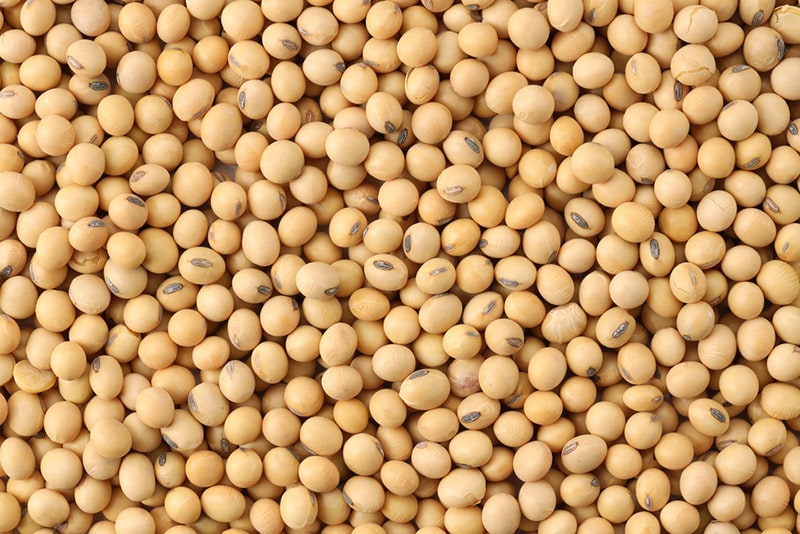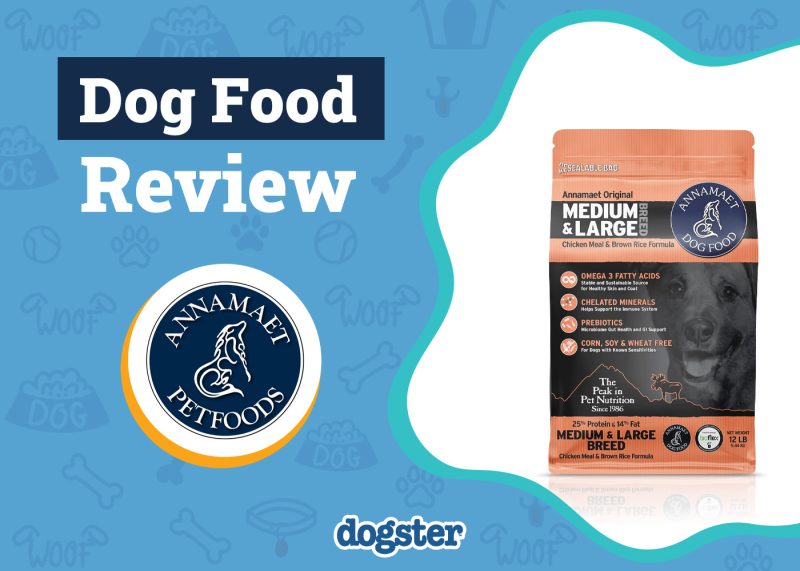In this article
The answer to whether dogs can eat soybeans is complicated. While soybeans are not technically toxic to your dog, there are plenty of concerning risks associated with soybeans that make them inadvisable as a regular treat. At the same time, there are positives to soybeans that make some people lenient enough to feed their dogs foods containing soybeans.
In short, soybeans are somewhat controversial when feeding them to your dog. The best way to ensure you are feeding your dog a proper and healthy diet is to consult your vet, especially before adding any new food to your dog’s meals. To learn more about the pros and cons of soybeans, keep reading below.

What Are Soybeans?
Soybeans are a legume that is native to East Asia. Unfermented uses of the soybean include soy milk, tofu, and tofu skin. Fermented products include soy sauce, fermented bean paste, and foods such as natto (a Japanese meal made with fermented soybeans and rice) or tempeh (a traditional Indonesian food).
Soybeans are often used as a cheap source of protein for animal feed and as substitutes for meat and dairy products.

Pros and Cons of Feeding Soybeans to Your Dog
When feeding soybeans to your dog, it is crucial to weigh the pros and cons with your vet. Before you add anything new to your dog’s diet, you should always consult your vet and add new foods slowly so that your dog can adjust.
Pros
As mentioned before, soybeans are not toxic for dogs. If fed in careful moderation, they can even provide some benefits. Soybeans can boost your dog’s nutrition since they contain healthy vitamins, amino acids, and folic acids.
However, these positives may be insignificant in the grand scheme of things. Ultimately, if your dog is fed a well-balanced diet, they already receive the necessary vitamins, amino acids, and folic acids. Your pup does not need soybeans to supplement their meals, so they are not very beneficial.

Cons
One major drawback to feeding your dog soybeans is the possibility of an allergic reaction. Feeding soybeans may trigger a reaction if your dog has a soy allergy or intolerance. If you choose to feed your dog soybeans, you should strictly limit how much you feed.
Foods containing soy may induce bloat in your dog if served in excess. Bloat is a severe condition in which the stomach fills with air, building enough pressure to prevent your dog’s blood from flowing back to the heart.
This causes blood to pool near your dog’s hindquarters and sends them into shock. Bloat is a rapidly fatal condition, so if you notice signs, such as vomiting or enlargement of the abdomen, seek emergency veterinary services immediately.
It’s best to avoid serving tempeh or soy sauce because foods containing soy tend to have additional spices or a high sodium content.
If you need to speak with a vet but can't get to one, head over to PangoVet. It's our online service where you can talk to a vet online and get the advice you need for your pet — all at an affordable price!
Is Edamame Safe for Dogs?
Edamame is a popular soybean-based food. Although it is not strictly toxic for canines, it can have negative consequences that you should be aware of.
Pros and Cons of Feeding Edamame to Your Dog
Much like soybeans, edamame has pros and cons when feeding it to your dog.
Pros
Edamame is low in calories, so it isn’t a fattening treat when given to your dog on occasion. It also contains plenty of beneficial vitamins and minerals. Vitamin C is a critical component of edamame. It is also an antioxidant, which means that it can reduce inflammation.
Calcium is another benefit of edamame. It is essential to the structure of the skeleton and the function of the nervous system. It also assists muscular contraction, reduces blood clots, promotes enzyme activity, and releases hormones.
Omega-3 fatty acids are also found in edamame. They are vital to your dog’s skin and coat health and can also reduce the odds of developing diabetes.
Edamame contains plenty of fiber, which is essential for digestion and maintaining a healthy weight. The vitamin K in edamame reduces blood clots, and the folate assures proper metabolic processes. Again, however, all the benefits of edamame are already adequately provided, assuming your dog is fed a healthy and well-balanced diet.

Cons
All of the cons that apply to soybeans also apply to edamame. In addition, since edamame is high in fiber, it can cause your dog to experience digestive issues. Another potential concern with edamame is the pods. The pods are tough, and if your dog chews on them, they can choke. This is especially true for smaller dogs.

Final Thoughts
Soybeans may have their benefits, but for the most part, there is no need to feed them to your dog. The benefits that soybeans provide are already covered in a healthy, well-balanced diet. Since soybeans are not toxic to dogs, there shouldn’t be an issue if your dog sneaks one without you looking. If you want to feed soybeans to your dog as treats, consult your vet before making any decisions.
See also:
- Can Dogs Eat Beans? Vet-Approved Nutrition Facts, Risks, & FAQ
- Can Dogs Eat Black Beans? Vet-Reviewed Facts, Pros & Cons
Featured Image Credit: nnattalli, Shutterstock


















